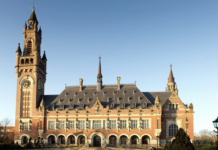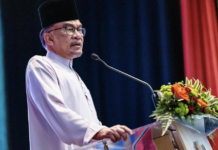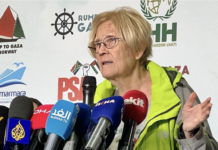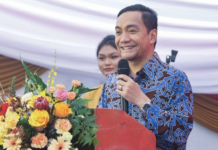KUALA LUMPUR, Sept 1 — Phase 1 payments for Bantuan Khas COVID-19 (BKC) will be made in stages from Sept 6, 2021 for B40 recipients and Sept 9, 2021 for M40 recipients, said Finance Minister Tengku Datuk Seri Zafrul Abdul Aziz.
He said the allocation involved a fund of RM3.1 billion, benefitting 4.4 million households, 1.1 million senior citizens who were single or without partner and 4.5 million single individuals.
“Overall, this cash assistance initiative is expected to benefit almost 10 million households and individuals with senior citizens and singles with an allocation of RM4.6 billion.
“The BKC payments are scheduled for September, November and December 2021,” he said while presenting the 66th Implementation and Coordination Unit Between National Agencies (LAKSANA) report through his Facebook page here today.
Tengku Zafrul also said that the Prihatin Network Programme, which has now been extended until Sept 30, has been improved where RM500 million was added under the PEMERKASA Package, making the value of the programme at RM2 billion.
“Besides that, telecommunication companies will offer additional benefits, especially additional free data worth RM1.5 billion, and this brings the total benefit of the Prihatin Network Programme to RM3.5 billion,” he said.
He added that all Malaysian citizens who are eligible to receive Bantuan Prihatin Rakyat (BPR) are also eligible to participate in the Prihatin Network Programme and receive a monthly data plan subsidy or a subsidy for the purchase of mobile device packages.
“As of Aug 20, subsidies worth RM412.6 million have been successfully utilised by 3.1 million BPR recipients,” he added.
Meanwhile, Tengku Zafrul said the confidence in digital transformation was based on the government’s increased focus to strengthen and improve basic telecommunication networks with a special allocation of RM9.4 billion in Budget 2021 which covers the education, employment and digital transformation sectors.
This is supported by the National Digital Network Infrastructure Plan (JENDELA) which also allocates funds to increase digital connectivity in schools nationwide in an effort to support the transition of online learning as well as provide a better broadband experience and to prepare the country for 5G technology, he added.
“Besides that, there are also plans under Malaysia Digital Economy Corporation (MDEC) such as providing reskilling and upskilling programmes to facilitate the transition of manpower into the ICT industry and grant schemes related to digitalisation.
“These measures not only support the enhancement of digital connectivity but also create a more inclusive digital society that drives business activities that can increase Malaysia’s chances of becoming a regional digital hub in the era of the Fourth Industrial Revolution,” said Tengku Zafrul.



















